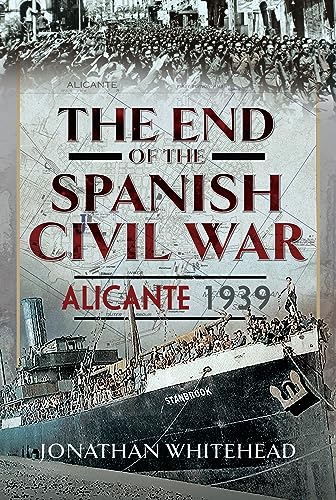Product desciption
The End Of The Spanish Civil War Alicante 1939 Jonathan Whitehead by Jonathan Whitehead 9781399063913, 139906391X instant download after payment.
The Spanish Civil War ended in Alicante. After Catalonia fell to the Hitler and Mussolini backed military rebellion of Franco's Nationalists at the outset of 1939, the legitimate Republican government of Dr Negrín was faced with a choice between apparently futile resistance or unconditional surrender to the triumphant Nationalists. Choosing the path of continued defiance until they could force concessions or at least implement a mass evacuation of those Republicans most at risk in Franco's new Spain, the government withdrew to Elda in the province of Alicante. However, their plans were thwarted by a new rebellion of Republican officers, led by Colonel Segismundo Casado, who resented Negrín's reliance on the Communist Party and the USSR and believed themselves better equipped to negotiate a peace settlement with Franco. They were misguided, Franco had no wish, and ultimately no need to negotiate. Meanwhile, faced with the imminent risk of arrest by the new junta, the Prime Minister and his cabinet were forced to abandon Spain from the tiny aerodrome of Monóvar. A relatively quiet port on the eastern, Mediterranean coast of Spain, Alicante had remained at some distance from the frontlines throughout the fighting on the ground, but swiftly became a target for Italian bombers operating out of bases in the Balearic Islands. In May 1938, at the height of the air offensive, Italian bombers attacked the marketplace, causing a massacre as tragic as the events in Guernica, yet largely ignored by historians. As the war drew towards its conclusion, Alicante became increasingly significant as attention focused on the plight of the defeated Republicans. In the second half of March 1939, the fronts collapsed, and Madrid finally fell to the insurgents. Tens of thousands of refugees descended on Alicante in the forlorn hope of rescue by French and British ships that had been promised but which failed to materialize. Amid the tragedy, as the British and French governments declined to engage in any humanitarian intervention that might offend Hitler and Mussolini, a single hero emerged; Captain Archibald Dickson, the Welsh master of the Stanbrook who ditched his cargo and transported 3,000 refugees to safety in North Africa. On 30 March 1939, Franco's vanguard, the Italian 'Volunteer' Corps under General Gastone Gambara, occupied a town already under the control of the Fifth Column. Two days later the Generalísimo issued a communiqué from his headquarters in Burgos, declaring that the war was over. The bulk of the Republicans surrounded and captured in the port were marched to an improvised internment camp, known as the Campo de los Almendros (Field of Almond Trees). They were then transferred to the infamous concentration camp at Albatera to share the fate of defeated Republicans across Spain and to undergo the program of ideological cleansing of the new fascist authorities.


